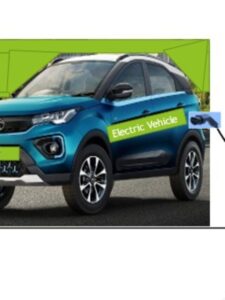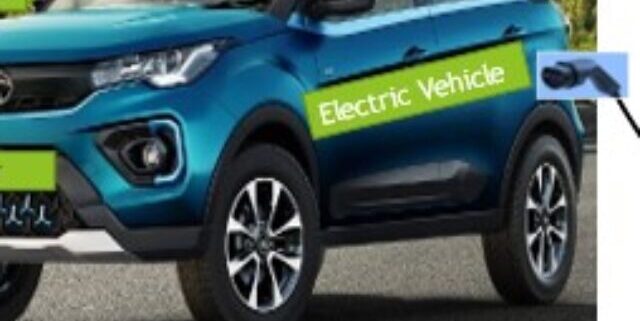Electric Vehicle (EV)
Electric Vehicle

Electric Vehicle :
What is Electric Vehicle?
An electric vehicle is just like any another vehicle which is used to carry persons & material from one place to another place, but it operates with the help of an electric motor which is powered by rechargeable batteries that can be charged by external electrical source. It is also known as EV (short name of electric vehicles).
Other conventional vehicles have Internal Combustion Engines (ICE) & they use fossil fuels like diesel, petrol, CNG, LPG etc. to operate.
Main components of an electric vehicle (EV) –
- Battery bank
- Inverter & Controller
- Motor
- Charger
- EPCU (Electric Power Control Units)
- Body of vehicle
- Wheels (numbers depending on the type of vehicle such as 4 wheelers, 3 wheelers ..)
All above components are required to convert the electrical power into kinetic power that drives the electric vehicle forward.
Types of electric vehicle –
Electric vehicles are available in all forms –
- Two-Wheeler
- Three-Wheeler,
- Four-Wheeler
- Buses

How electric vehicle is different from other vehicles–
Look wise an electric vehicle is similar to conventional vehicle from outside but internally they are different. Following are major differences –
- A conventional vehicle has an engine which needs fuel like diesel, petrol, CNG, LPG etc to run it while electric vehicle needs electric supply which is taken from battery bank that is installed inside the vehicle.
- A conventional vehicle generates green house gases (GHG) such as CO2, CO etc while there is no GHG emission from electric vehicles as there no fuel combustion.
- A conventional vehicle makes lot of noise because of engines & moving parts when it runs while electric vehicle doesn’t produce any noise/sound.
- Maintenance cost is less in electric vehicle (as it doesn’t have engine) as compared with conventional vehicles.
- Running cost (Rs/Km) of electric vehicle is also less as compared with conventional vehicle.


Trackbacks & Pingbacks
[…] you go out on an e-vehicle & suddenly you feel that battery needs charging, then public charging stations will help you. These public charging stations will be available at various locations in the city […]
[…] Vehicle Supply Equipment (EVSE) – shall mean an element in Electric Vehicle Charging Infrastructure (EVCI) that supplies electrical energy for recharging the battery of […]
Leave a Reply
Want to join the discussion?Feel free to contribute!